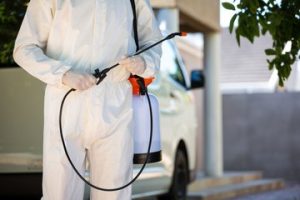Pest infestations can cause stress, property damage, and health risks. Unwanted guests like ants and cockroaches reproduce quickly and may spread bacteria, while rodents chew through wiring and wood.
Fortunately, some services offer effective treatment and preventative measures. A good service provider will conduct an inspection and provide a detailed quote. Look for Pest Control Trophy Club TX company that offers warranties and follow-up visits to ensure long-term success.

Preventive Measures
Pest infestations can cause a variety of health problems for people and pets in the home. Rodents and cockroaches spread dangerous bacteria and viruses that can lead to serious illness, while mosquitoes and bed bugs trigger severe skin allergies. Professional pest control services eliminate these and other pests using effective, targeted strategies.
Aside from removing pests and their eggs, a professional pest control company can also help prevent their return. This proactive approach includes identifying and sealing entry points, removing attractants like food sources, and providing routine inspections and treatment options. Many services even offer ongoing maintenance plans to keep pests away from homes and businesses for good.
Unlike over-the-counter products, professionals know how to properly use and apply pesticides without endangering family members or pets. They also have a wealth of knowledge about the behaviors, habits, and biology of pests, enabling them to quickly identify and target infestations at their source.
While it is possible to tackle some minor pest infestations on your own, a professional service offers a level of expertise, safety, and long-term value that DIY solutions simply can’t match. In addition, many DIY methods only treat the symptoms of an infestation and don’t address the underlying causes. This often leads to repeat treatments and increased costs in the long run. A professional pest control company can save you time and money by addressing infestations quickly and preventing their return.
Personalized Treatments
Professional pest control services use targeted treatments to eliminate the pests that are causing problems. Often, these treatments will also prevent future infestations. For example, a pest control company can identify and seal entry points during an inspection to ensure that pests won’t find their way back into the home.
Aside from preventing future pest infestations, professional pest control services can help you save money on property damage. For instance, certain pests like termites and rodents can cause significant damage to a building if left untreated. Professional pest control services can stop these pests before they become a major issue, saving you thousands in costly repairs.
When looking for a reliable pest control service, look for customer reviews and testimonials. Pay special attention to the positive and negative reviews, as well as how quickly the company responds to any complaints. You should also ask about the treatment methods used by the company. Ideally, the company should use Integrated Pest Management techniques, which are safer for humans and pets than traditional products.
In addition, be sure to compare prices between different providers. Some companies may charge per visit, while others might offer package deals for a set period of time. When comparing prices, make sure to take into account the number of visits and the types of services included in each package.
Safe and Effective Treatments
Pests like cockroaches and rodents transfer bacteria and disease, and if not addressed, these infestations can spread quickly. A professional pest control service will have the skills, equipment, and knowledge to safely and effectively eradicate these unwelcome guests.
Homeowners can take preventive measures to protect their homes from pests, too. Regular inspections by a pest control expert can help catch these problems early, before they become severe. For example, termites may cause serious damage before they’re noticed, but regular termite inspections can catch the wood-destroying insects in their tracks, allowing for more targeted and cost-effective treatments.
Many pests can find their way into our homes through cracks, crevices, and small openings. Sealing these spaces with caulk or metal mesh can help, but a comprehensive pest prevention strategy should include regular scouting and treatment. Identifying and addressing the places where pests are most likely to enter is important, such as by checking under leaves or along foundations for mosquitoes, or in attics and basements for signs of rat or mouse activity.
Pests can also damage your property and create hazardous conditions for family members and pets. Pest control services can eliminate these threats and prevent them from returning, preserving the value of your property and the safety of your loved ones.
Reliable Service
Pests like rodents and termites cause extensive property damage if left untreated. Hiring professionals to get to the root of the problem means fewer costly repairs down the road. In addition, pest control services prevent future infestations by eliminating current ones and establishing prevention strategies that will keep the pests away.
When hiring a pest control company, look for a provider with an established history and good reputation. Checking with friends and family who have used a particular service, as well as online reviews and ratings, can help you identify reliable providers.
In addition, be sure to ask a potential pest control service for proof of insurance and licensing. If a worker gets injured while working in your home, you will want to be covered. It’s also a good idea to inquire whether a company’s salespeople and technicians are salaried employees or paid on commission.
In addition, reputable companies will offer transparent information about their experience and expertise. You can also ask if they are affiliated with professional organizations in the industry, as affiliations require adherence to strict guidelines and standards. Look for a pest control company that can provide these details on their website or upon your request. A lengthy experience often translates to consistency, reliability, and superior results. It’s important to understand that pest control is a complex process, and hiring an experienced team is the best way to get the most out of your treatment plan.
